Monthly Journal
December 2022
International Press Review
The most relevant events of the area through international sources
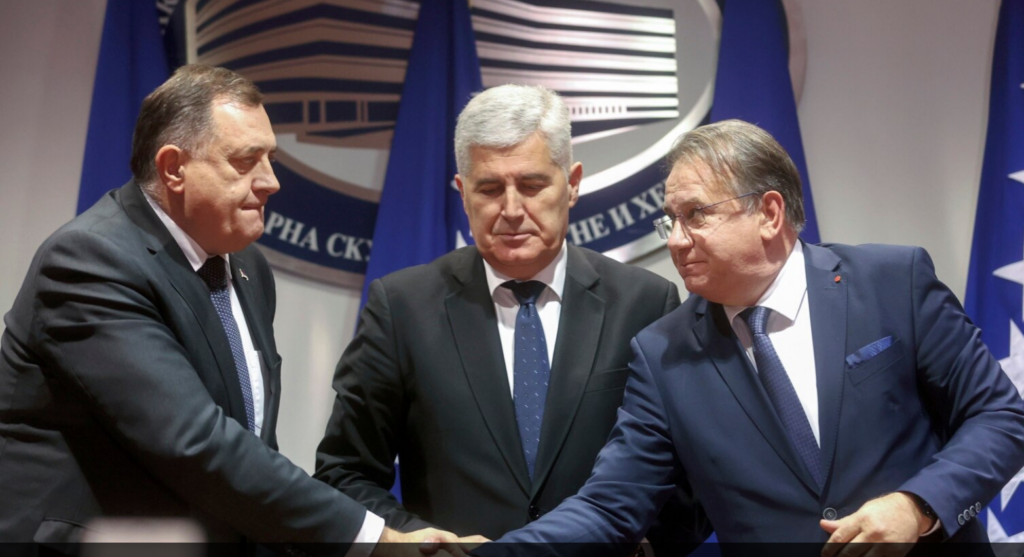
Bosnia and Herzegovina gets EU candidate status
Voice of America
Following the inclusion of Moldova and Ukraine as candidates for membership in the European Union in June, European Union leaders added Bosnia to the list of official candidates to join the 27-nation bloc, marking for Sarajevo the beginning of a long road to membership. The Western Balkans country joined the waiting list despite ongoing criticism of its weak institutions, widespread corruption, recurring political crises and a secessionist agenda of pro-Russia Bosnian Serbs, and under the condition of implementing several reforms. However, the EU is concerned that powers, such as Russia or China, will expand their influence into the Balkans if countries hoping to join the bloc are kept waiting.
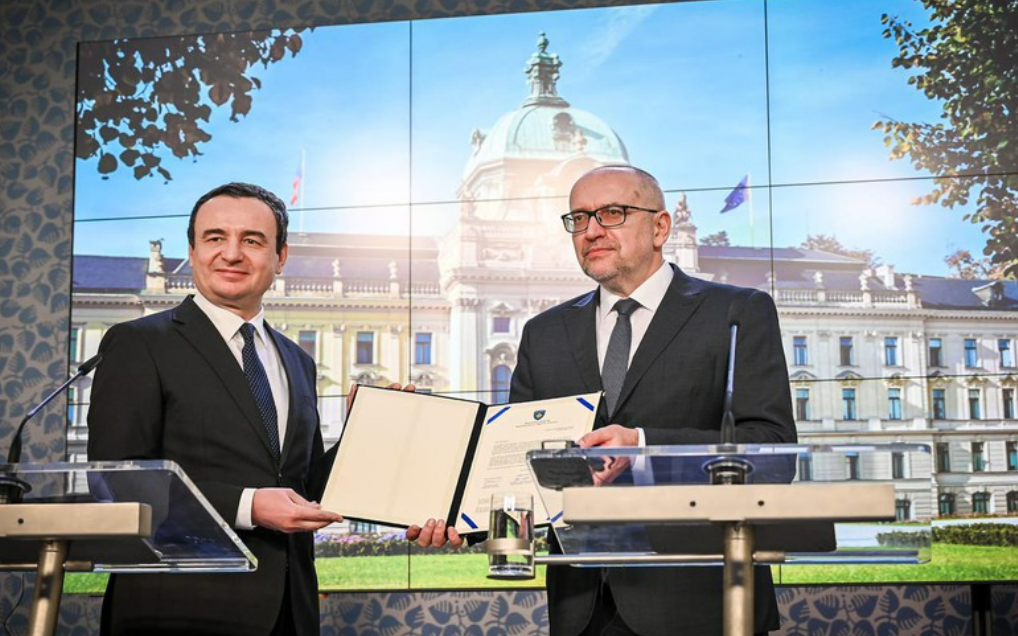
Kosovo formally applies for EU membership
Deutsche Welle
Kosovo formally submitted its application to become a candidate country for membership in the European Union, kicking off a process that could take years and it is dependent on normalising relations with neighbouring Serbia. Currently, Kosovo’s chances are rather reduced, as five EU members (Greece, Spain, Romania, Slovakia, and Cyprus) refuse to recognise Kosovo as an independent state for eminently internal reasons. If the request is nonetheless granted, Kosovo will join the ranks of the following candidate countries: Bosnia and Herzegovina, Turkey, North Macedonia, Montenegro, Serbia, Albania, Moldova, and Ukraine.
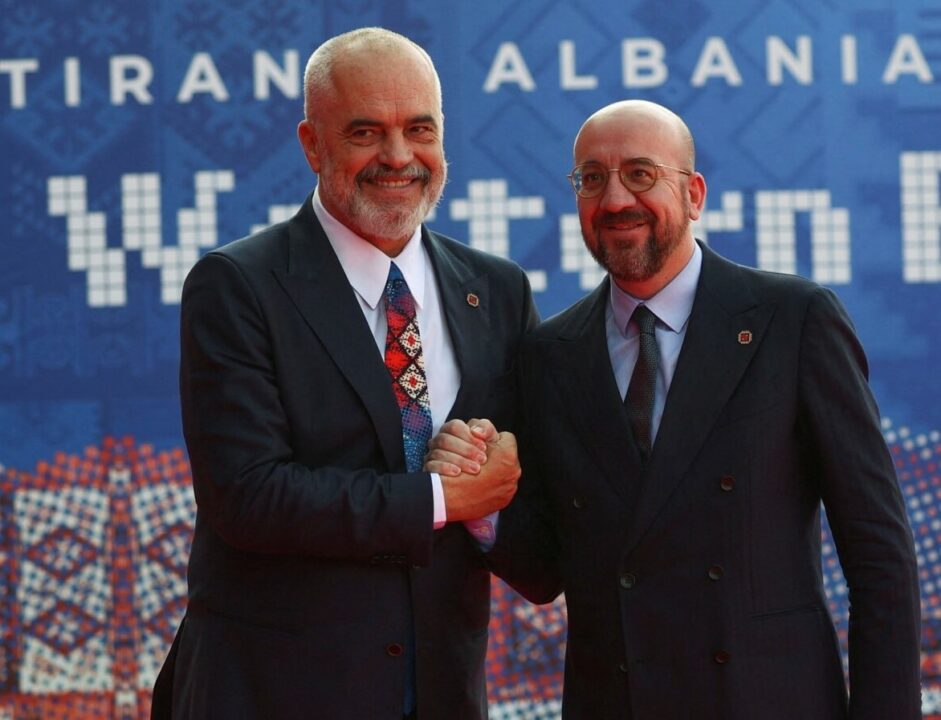
EU and Balkan leaders meet in Tirana
Radio Free Europe
EU leaders met with their Western Balkans counterparts in Albania’s capital Tirana on December 6, in a conference organised to reassure the region of a future in the EU bloc amid fears of rising Russian and Chinese influence. The EU-Balkans summit was an opportunity to review progress in the implementation of the EU’ 30-billion euro ‘Economic and Investment Plan’ for the development of the region. In a declaration released after the meeting, the EU “reconfirmed its full and unequivocal commitment to the European Union membership perspective of the Western Balkans” and called for the acceleration of accession talks. Furthermore, the EU presented an ‘Action Plan’ to fight irregular migrations through the Balkans towards the Union, increasing since months.
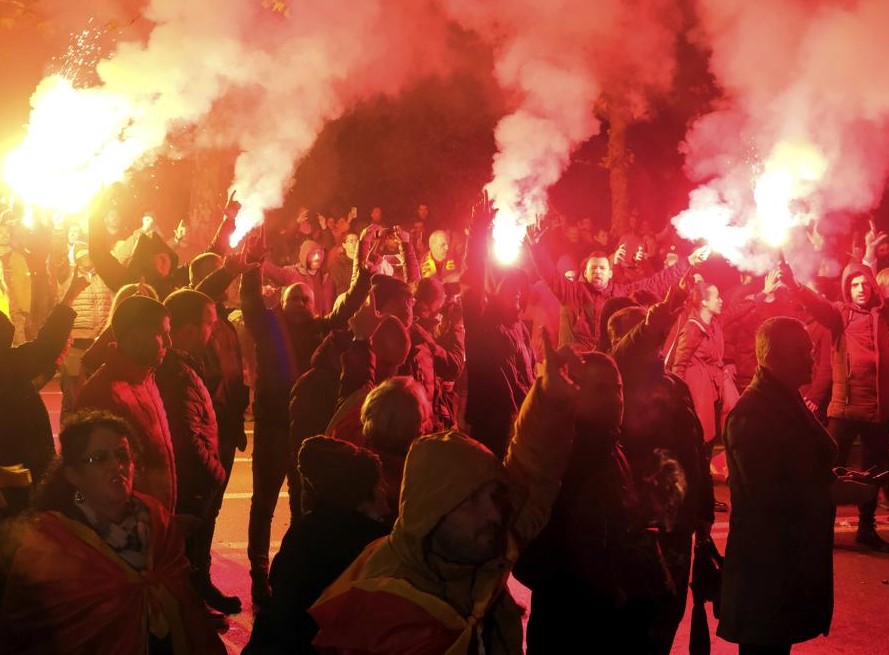
Crisis in Montenegro escalating amidst protest
The Associated Press
Clashes erupted during an opposition protest in Montenegro, a NATO member undergoing a deep political crisis involving pro-Western, pro-Serb, and pro-Russian political camps. The protest took place as lawmakers inside the parliament building voted to deprive the country’s pro-Western president, Milo Djukanovic, of his role in appointing the prime minister. Montenegro has been paralysed by a months-long government crisis and political stalemate. The European Commission expressed concerns about the country’s institutional crisis, which has slowed down its accession negotiations.
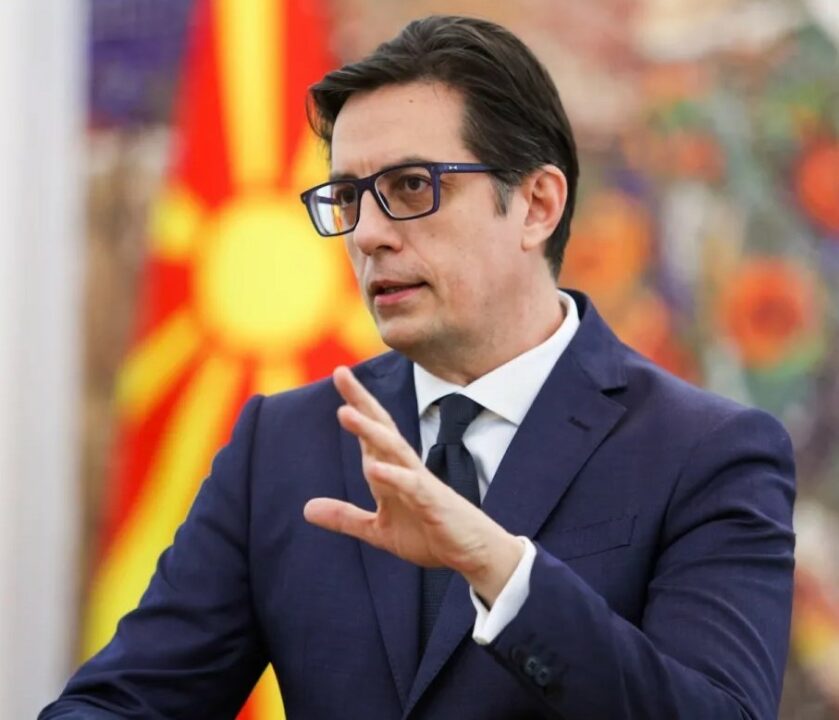
Support for EU integration dropping in North Macedonia
Al Mayadeen
North Macedonian President Stevo Pendarovski warned that the delays in the enlargement process have significantly reduced popular support for EU accession in his country. “In the last 18 months alone, support for EU integration has dropped by 25%, and we are now in the range of 60–62%,” Pendarovski noted. In 2020, North Macedonia joined NATO after changing its official name in order to get Greece withdraw its veto on joining the military alliance and the EU, but subsequently, the country faced the opposition of Bulgaria due to a long list of historical and linguistic issues.
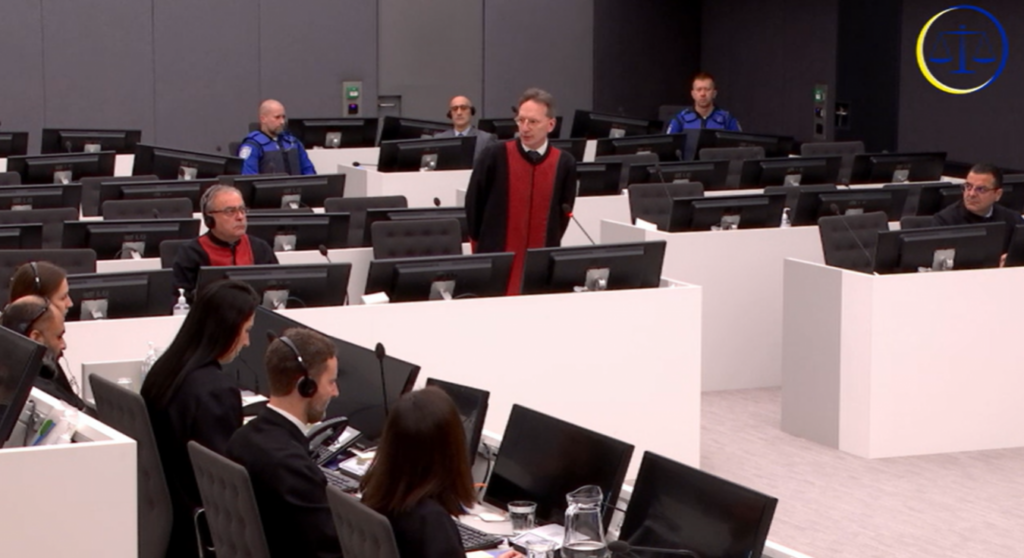
First former KLA commander convicted for war crimes
Balkan Insight
Salih Mustafa, a former Kosovo Liberation Army (KLA) unit commander, was sentenced to 26 years in prison for war crimes, including arbitrary detention, torture and murder, by the Kosovo Specialist Chambers in The Hague. The verdict is the first war crimes verdict issued by the Kosovo Specialist Chambers, that were established to try former KLA fighters for crimes committed during and immediately after the Kosovo war from 1998 to 2000. In Pristina, the verdict sparked some protests, while in the public narrative the political defence line is that the KLA was not de jure and de facto “a joint criminal enterprise”.
The Insight Angle

Donika Emini
A political analyst and an expert in regional cooperation, security and on the dialogue between Kosovo and Serbia, she is currently leading the CiviKos Platform, a secretariat gathering 250 civil society organisations in Kosovo. She previously worked for the Kosovar Centre for Security Studies, the EU Institute for Security Studies (EUISS), Transparency International, the Balkan Policy Institute (IPOL) and Kosovo’s Foreign Ministry. Emini is also a member of the Balkans in Europe policy advisory group (BIEPAG).
A deal on normalising the relationship between Serbia and Kosovo is on the international community’s agenda again. Could the alleged French-German plan be an acceptable solution for both parties? If not, what would you suggest as a possible deal-breaker? And could an agreement be reached next year?
The war in Ukraine has further increased the security alerts on yet another soft spot in Europe – the open disputes as a legacy of the violent breakup of Yugoslavia. Notably, the issue between Kosovo and Serbia represents one of the most fragile issues with serious repercussions for the stability of the region but also of the EU as well. The dispute seemingly is not as issue that only involves the two parties, it however implicates the EU as the facilitator of the Dialogue since 2011 and it has often served as an arena witnessing the clashes of the titans – the West (EU, USA, NATO) versus Russia, and to some extent China.
The urgency to keep stability in a region, that can easily turn into another frontline in Europe, has pushed the EU and USA to intensify its efforts to reach an agreement between Kosovo and Serbia. This is also a good momentum for the West to bring Serbia closer to the EU and to detach it from Russia, which is immensely busy with Ukraine and has limited political capacity to meddle with the Balkans.
The latest proposal, the so-called French–German plan, has been first circulating among EU pundits and later its existence has been formally admitted by the EU, Kosovo and Serbia. Little details are known about the proposal, but the document sets a timeframe and stages until the parties reach the final agreement. The proposal has sanctions for the parties reluctant to commit genuinely to the process – which makes it different and blunter in terms of the EU’s attitude toward this process. However, the proposal aims to make one step further in solving the dispute, but it will not bring total closure. The agreement is seemingly a continuation of the First Normalisation Agreement of 2013, that does not contain the expected breakthrough for Kosovo – i.e., the recognition from Serbia. Recognition by the five EU countries that so far do not recognize Kosovo, an idea that Kosovo has often advocated for, has not been mentioned so far, which makes the plan less appealing for Kosovo. The plan might be a good intermediary step toward the final deal which would close the open dispute between the two countries.
An agreement based on the so-called French-German plan has a high probability to be reached during the first part of the next year, as all parties are pushing in that direction. However, for this agreement to be effective and implementable, its draft must be clear in language – thus the EU should abandon its ‘constructive ambiguity’. The agreement shall provide a very clear action plan for the implementation and pave the way for the last step which should end with mutual recognition. Anything less than recognition and full closure, will leave the dispute open and will risk the future of both countries and the entire region.
Belgrade repeatedly stated that Serbia would never recognise Kosovo’s independence. How to overcome this obstacle?
The political elite in Serbia has often used the case of Kosovo for domestic political consumption, thus feeding the nationalist narratives while gradually capturing the state and strengthening its relations with Russia, which sided with Serbia in relation to Kosovo. So, the recognition of Kosovo is not about Kosovo per se as much as it is about state capture [in Serbia], the position of Vucic as the partner for dialogue for the EU and the geopolitical partnership with Russia. Given the above, the recognition of Kosovo is strongly linked to the democratization and Europeanization of Serbia. It is about a guaranteed and more credible EU path and it is about fighting state capture.
Without the recognition of Kosovo by Serbia, there is a very easy way to open the European path for Kosovo and potential NATO membership or Partnership for Peace (PfP). The first step to overcome this dependency on Serbia’s decision to recognise Kosovo is for the five EU member states to recognise Kosovo. In this way the EU path for Kosovo is open and the political obstacles in this regard are lifted. Similarly, the veto of the non-recognisers would not block Kosovo’s membership in NATO, which is way more important than the EU membership in a region with such fragile security situation. So, it will give Kosovo the PfP and even more intensive relation with NATO which can lead to membership.
Making it part of international organisations would give Kosovo a more secure place in international arena without it depending solely on Serbia’s political will. This way, the dispute of Kosovo and Serbia will remain at the margins of the political life of two countries and will not further feed the power asymmetry between the two in the international arena and during the dialogue. And the dialogue can solve issues between Kosovo and Serbia.
If both countries cannot reach an agreement through the dialogue, as it was the case so far, do you think the international community could discuss a possible deal without involving Belgrade and Pristina, following a ‘Yalta-model’, and then impose a solution?
The political will of both parties is crucial for a sustainable and implementable agreement. An imposed solution can look like the fastest way to reach a deal only in cases when the parties are at war and the margins for negotiations are extremely low. In the case of Kosovo and Serbia, both parties are committed to the process directed not only to solving the dispute but also paving their EU integration path. Hence, both Kosovo and Serbia – in addition to the EU facilitated Dialogue – have also developed their formal bilateral relations with the EU. In that sense, there is enough political capacity to negotiate and take full ownership in the process.
An imposed solution without ownership of the parties that are signatories to the agreement exposes the entire process to multiple risks. First, an imposed solution can create gaps that both parties can use to justify the lack of political will for the implementation of the agreement. An imposed solution is more likely to be used by the leaders to frame it as a ‘bad compromise’ the West pushed the parties to make, generating anti-West sentiment in both countries while requiring little to no political capital to implement the agreement.
Although, given the current situation in the northern part of Kosovo, the pressure from the EU and the US. is clearly stronger and the efforts to push the countries toward the final deal are clearly more intense. The French-German plan, backed by Washington, shows that the parties still need a third party to intervene and mediate, yet the ownership is being given by simply proposing an arrangement and leaving the parties to negotiate and reach the agreement. Should the security situation in the north become more serious, the likelihood of an externally imposed agreement will increase. However, it is very unlikely to take the ‘Yalta model’ scenario.
Do you think the EU could revitalise the integration process in the Balkans by proposing to Belgrade and Kosovo a fast-accession track and their joint accession to the bloc?
With the current lack of enlargement appetite among the member states, it is very unlikely to witness fast track integration process for any of the Western Balkan country, nor there is a political will to have any ‘bloc’ enlargement toward the region.
The EU’s reluctancy to make any steps – for instance after the North Macedonia–Greece agreement, has come to the expense of the EU credibility, leadership and ability to solve disputes and live to their promises. The EU normative power in the situations of ongoing conflict has been questioned very often and the case of Kosovo and Serbia expose this vulnerability.
European pundits initially hoped that the EU’s accession policy would give the EU strategic traction in the dialogue it facilitated between Belgrade and Pristina. They put their faith in the transformative power the EU had taken pride of in the 2000s, although little indications existed of the EU’s prowess in such issue areas. On the contrary, experience showed, at least in the case of North Macedonia vs. Greece, or Croatia vs. Slovenia, that bilateral disputes remained rather immune to transformation under EU guidance. They had their own logic of negotiations that tended to put national interests in the forefront and European integration on the back burner. This belief that the accession policy, with its membership incentive and Copenhagen criteria, would tame nationalism, foster reconciliation and allow parties settle their disputes in a good-neighbourly spirit was in most cases plain wishful thinking.
Solving disputes should also have a regional character and only a credible enlargement perspective can pave the way for a more successful process. Trying to cover these issues and move on without solving them might create another Cyprus scenario in the Balkans. And this is not going to work in favour of the EU nor for the region.
The Key Story
Strategic trends
A new crisis in Northern Kosovo
shakes the Balkans again
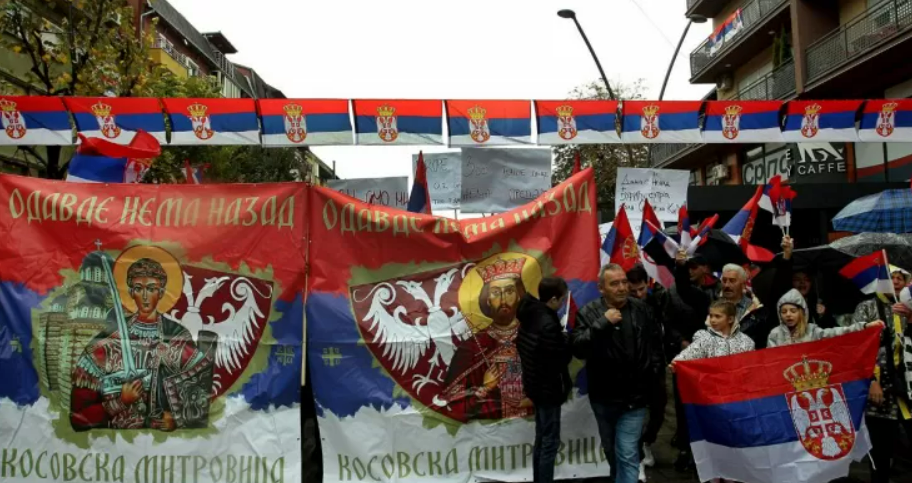
Tensions between Serbia and Kosovo rose again in December, with another crisis erupting in the north of Kosovo, inhabited primarily by Serbs. The new crisis confirmed that the unsolved Kosovo issue can potentially lead to a full destabilization of the region or, in extreme scenarios, to an armed conflict.
The crisis erupted just days after the international community managed to defuse another row over Serbian licence plates. The new escalation was triggered by several factors, including the decision of the Kosovar authorities to schedule local elections in the north on the 18th of December, in order to replace the Serbian majors who had resigned in protest during the car plate crisis. Serbs responded by declaring a boycott of the election. The move, on the other side, sparked new tensions, including attacks on some electoral commission offices in Serbian-populated areas, as well as police and EU law enforcement (EULEX) patrols in Kosovo. Meanwhile, hundreds of Kosovo police officers were sent to north, which Serbs routinely sees as a provocation.
Following pressure from its main international allies, including the United States, the Kosovo institutions finally decided to postpone the election. However, the arrest by Kosovar authorities of an ex-police officer of Serbian ethnicity, accused of being involved in terrorist activities, infuriated Serbs in Kosovo and the government in Belgrade. Serbs in the north quickly set up roadblocks on major roads, paralysing traffic and forcing the closure of two major border crossings with Serbia.
Exacerbating the situation, Serbia asked the NATO peacekeeping mission in Kosovo (KFOR) to allow the return of up to 1.000 Serbian military and police personnel to its breakaway province, a scenario theoretically possible under UN Resolution 1244 (1999). The resolution, voted at the end of the 1999 conflict, foresaw the “return of an agreed number of Yugoslav and Serbian personnel”, but only for liaising with the international civilian and military mission in Kosovo.
Kosovo declared independence from Serbia in 2008. Serbia still denies Kosovo’s independence, and the Serb majority in northern Kosovo questions Pristina’s authority.
Kosovo President Vjosa Osmani called Serbia’s request a “hegemonic idea,” noting that her Serbian counterpart Vucic “knows very well that the presence of the Serbian army in Kosovo ended in 1999.” The Serbian leader, on the other hand, justified the demand by saying that a Serbian military presence in Kosovo would be “important for the protection of the Serb population”, despite the fact that the minority has been effectively protected by the KFOR for almost two decades.
While the international community is watching the ongoing crisis with increasing concern, Serbia and Kosovo appear to be even further apart, with no willingness to negotiate a de-escalation and to continue discussions on an agreement for the normalisation of their bilateral relationship. And, with both communities’ nerves exposed, the risk of a serious escalation is growing.
Further News and Views
EU reproaches Belgrade for not aligning with European foreign policies
Sources: HINA, Politico, European Council
The European Council warned Serbia that it is slipping in its alignment with the EU Common Foreign and Security Policy. The Council cited “the non-alignment with EU sanctions against Russia and Belarus, as well as its foreign policy actions contrary to the EU common approach,” in its conclusions on enlargement approved by the ministers for European affairs of the state members. Serbia has resisted pressure to join EU sanctions against Moscow and continues to massively import gas from Russia. Meanwhile, Russian energy behemoth Gazprom owns a majority stake in Serbia’s largest oil company, NIS. However, Serbia has walked a fine line by censuring Russia when necessary and supporting United Nations General Assembly resolutions condemning Moscow’s use of force in Ukraine.
Serbs still see Russia as their main ally
Sources: BCSP, Euractiv
According to a new public opinion survey conducted by the Belgrade Center for Security Policy (BCSP), half of Serbia’s population views Russia as its primary foreign policy partner, and two-thirds of Serbs have favourable attitudes toward Russia. According to the study, not even the war in Ukraine had an effect on the Serbian public’s perceptions. Russia is considered the closest partner by half of the Serbian population, with China coming second. Furthermore, the research shows that NATO and the US are perceived as the most dangerous antagonists, while the EU is perceived as more hostile than before. The main source of the radical pro-Russian narrative is pro-government media, which conveys their narratives to the public. Meanwhile, the International Security Institute warned that Serbia is getting dangerously close to other autocratic and aggressive regimes, such as Tehran.
Bulgaria and Romania buying F-16 fighters
Sources: Defence News, Meta Defence, Romania Journal
Bulgarian lawmakers have approved the purchase of eight F-16 fighter jets for the Bulgarian Air Force. The acquisition will cost nearly 1,3 billion euros, and Bulgaria’s Air Force will receive the first eight F-16s in 2025. The minister said that Bulgaria’s outdated Soviet-designed Mikoyan MiG 29 fighters will be withdrawn from service in 2023. Romania also bought 32 F-16s from Norway. As per the contract, the first plane will arrive in Romania in 2023. The 388-million-euro contract will be realised by 2023.
EU - NATO
NATO continues reinforcing its Eastern flank
Sources: NATO, TVP, Financial Times
Since Russia’s annexation of Crimea in 2014, NATO has implemented the largest collective defence reinforcement in decades, and following Russia’s invasion of Ukraine, NATO has stepped up again, including with eight multinational battlegroups from the Baltic Sea to the Black Sea: one in Bulgaria, Estonia, Hungary, Latvia, Lithuania, Poland, Romania, and Slovakia. The war in Ukraine “has demonstrated the importance of having a strong collective defence.” NATO’s increased military presence in the eastern part of the Alliance with battlegroups, high readiness, and more defence spending “and this is something we’ve been doing since 2014; we weren’t surprised,” NATO Secretary General Jens Stoltenberg said. Meanwhile, on December 14, NATO’s multinational battlegroup in Bulgaria achieved full operational capability. According to Romanian Foreign Minister Bogdan Aurescu, a NATO battlegroup in Romania will expand due to the increased military presence of the alliance’s member states on its eastern flank, following Russia’s invasion of Ukraine.
ECONOMICS
Think-tanks propose new strategy for the Balkans
Source: WIIW and Bertelsmann Stiftung
After nearly two decades in the EU’s waiting room, attitudes toward the bloc are cooling in the Western Balkans, according to a new study. Furthermore, the region’s continued exclusion from Europeis having a significant negative impact. According to a WIIW-Bertelsmann Foundation research, the Western Balkan countries’ real incomes per capita are less than half of the EU level, owing to the painfully long accession process and the fact that economic convergence with EU income levels has also been very slow over the last two decades. The EU could however strengthen regional cooperation and foster economic development in the Western Balkans by implementing policies aimed at raising incomes, such as increasing transfers from the EU budget to Western Balkan countries or even granting their economies full access to the EU budget. According to the study, the region is becoming vulnerable to geopolitical power games and democratic backsliding in the absence of a credible EU perspective.

Stefano Giantin
Journalist based in the Balkans since 2005, he covers Central- and Eastern Europe for a wide range of media outlets, including the Italian national news agency ANSA, and the dailies La Stampa and Il Piccolo.

